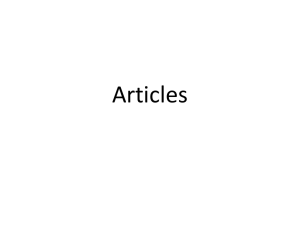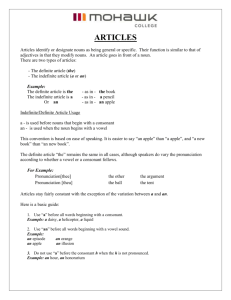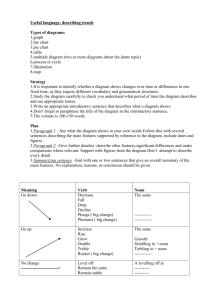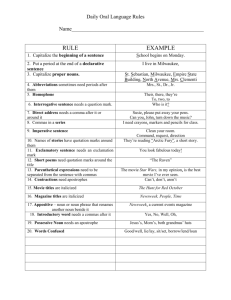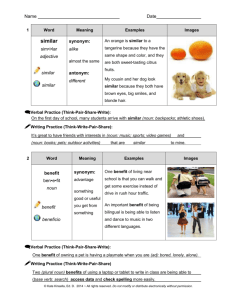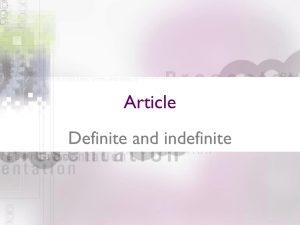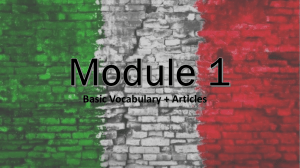Using Articles
advertisement
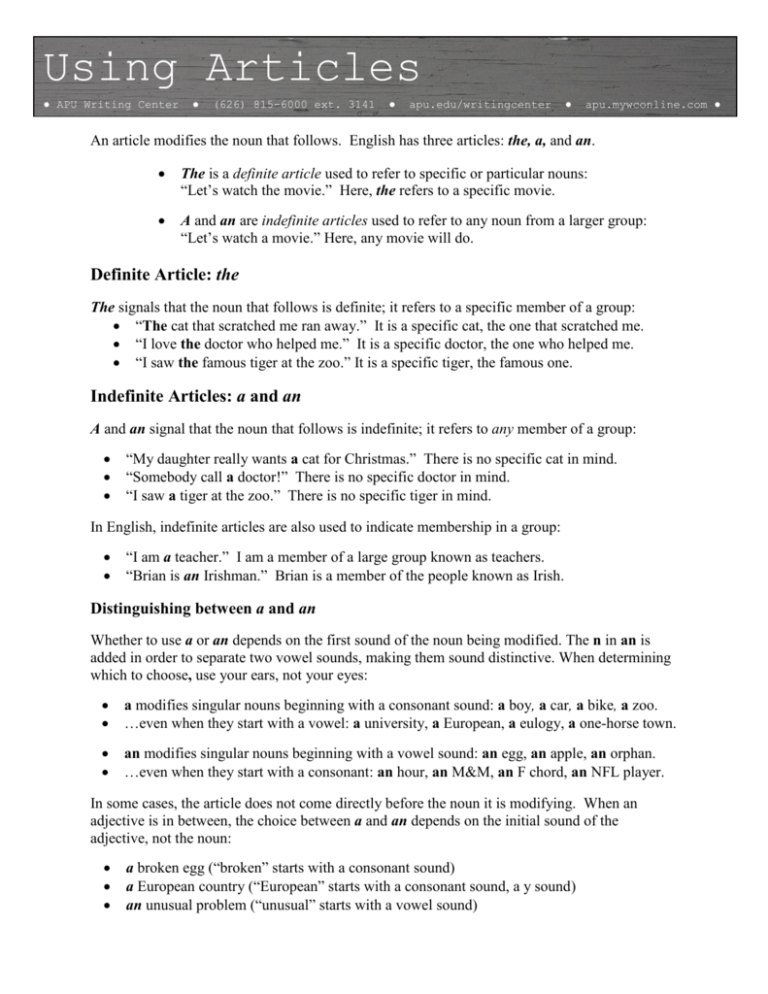
Using Articles ● APU Writing Center ● (626) 815-6000 ext. 3141 ● apu.edu/writingcenter ● apu.mywconline.com ● An article modifies the noun that follows. English has three articles: the, a, and an. The is a definite article used to refer to specific or particular nouns: “Let’s watch the movie.” Here, the refers to a specific movie. A and an are indefinite articles used to refer to any noun from a larger group: “Let’s watch a movie.” Here, any movie will do. Definite Article: the The signals that the noun that follows is definite; it refers to a specific member of a group: “The cat that scratched me ran away.” It is a specific cat, the one that scratched me. “I love the doctor who helped me.” It is a specific doctor, the one who helped me. “I saw the famous tiger at the zoo.” It is a specific tiger, the famous one. Indefinite Articles: a and an A and an signal that the noun that follows is indefinite; it refers to any member of a group: “My daughter really wants a cat for Christmas.” There is no specific cat in mind. “Somebody call a doctor!” There is no specific doctor in mind. “I saw a tiger at the zoo.” There is no specific tiger in mind. In English, indefinite articles are also used to indicate membership in a group: “I am a teacher.” I am a member of a large group known as teachers. “Brian is an Irishman.” Brian is a member of the people known as Irish. Distinguishing between a and an Whether to use a or an depends on the first sound of the noun being modified. The n in an is added in order to separate two vowel sounds, making them sound distinctive. When determining which to choose, use your ears, not your eyes: a modifies singular nouns beginning with a consonant sound: a boy, a car, a bike, a zoo. …even when they start with a vowel: a university, a European, a eulogy, a one-horse town. an modifies singular nouns beginning with a vowel sound: an egg, an apple, an orphan. …even when they start with a consonant: an hour, an M&M, an F chord, an NFL player. In some cases, the article does not come directly before the noun it is modifying. When an adjective is in between, the choice between a and an depends on the initial sound of the adjective, not the noun: a broken egg (“broken” starts with a consonant sound) a European country (“European” starts with a consonant sound, a y sound) an unusual problem (“unusual” starts with a vowel sound)
